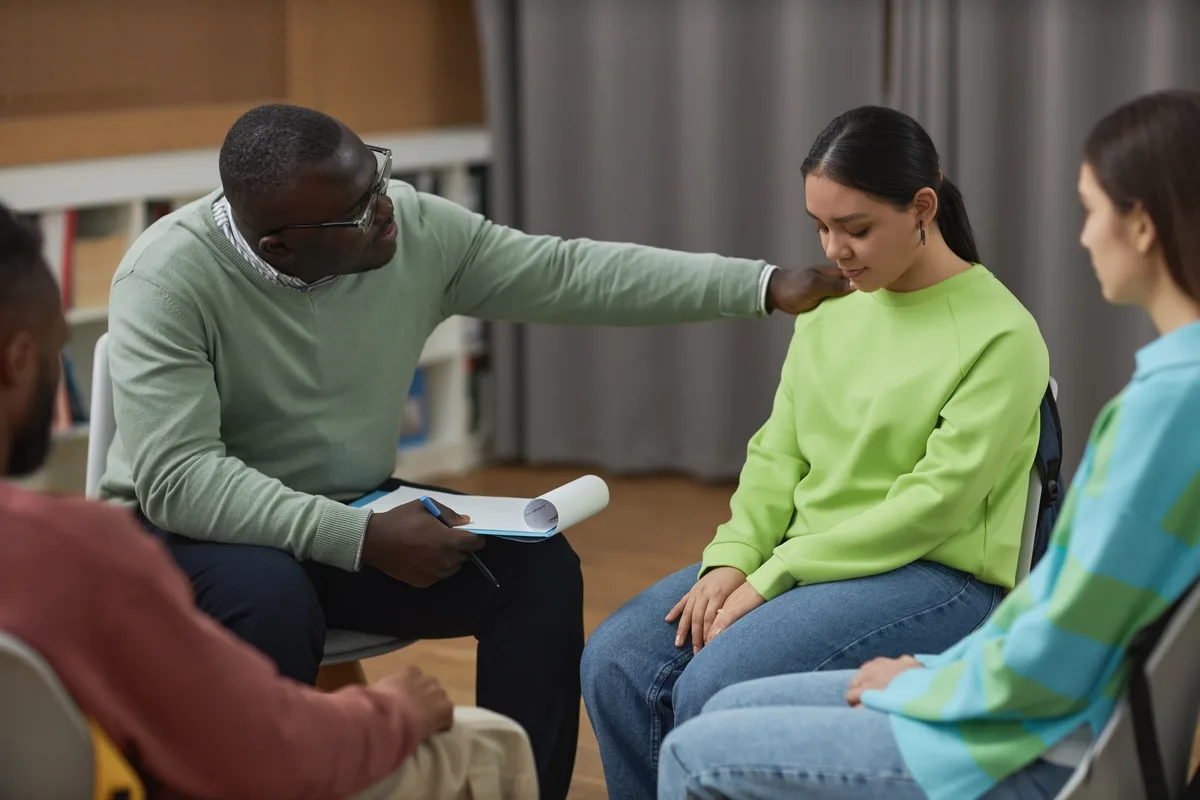24/7 Helpline:
(866) 899-221924/7 Helpline:
(866) 899-2219
Learn more about Medication-assisted Treatment centers in Decatur County
Medication-assisted Treatment in Other Counties

Other Insurance Options

Oxford

Covered California

EmblemHealth

PHCS Network

ComPsych

Humana

Excellus

Cigna

Premera

Ceridian

Horizon Healthcare Service

GEHA

Aetna

AllWell

UnitedHealth Group

BlueShield

Sliding scale payment assistance

Holman Group

Multiplan

Magellan

Centerstone
Centerstone is a non-profit rehab located in Greensburg, Indiana. Centerstone specializes in the tre...

Groups
Groups is private healthcare company providing outpatient treatment for opiate addiction using weekl...

Outside in
Outside In is located in Greensburg, Pennsylvania. Outside In provides individual, family, and group...

SPHS Behavioral Health
SPHS Behavioral Health is a non-profit rehab located in Greensburg, PA. SPHS Behavioral Health speci...

Gateway Rehab – Outlet Way
Gateway Rehab - Outlet Way provides flexible and confidential outpatient treatment required by those...

Accessible Recovery Services
Accessible Recovery Services - East Otterman Street provide the very best comprehensive medical care...

NHS Behavioral Health
NHS Behavioral Health is a private rehab located in Greensburg, Pennsylvania. NHS Behavioral Health ...

Allied Addiction Recovery
Allied Addiction Recovery is a drug and alcohol addiction treatment facility based in Greensburg, PA...





















The Adanta Group – Green County
The Adanta Group is a private, non-profit organization providing community-based mental health; subs...

Wesley Spectrum Services – Mental Health Services
Wesley Spectrum Services – Mental Health Services is a private rehab located in Greensburg, Pennsylv...

Excela Behavioral Health
Excela Behavioral Health is a private rehab located in Greensburg, Pennsylvania. Excela Behavioral H...

AA – Alcoholics Anonymous
AA – Alcoholics Anonymous is a non-profit rehab located in Greensburg, Pennsylvania. AA – Alcoholics...

MedMark Treatment Centers
MedMark Treatment Centers offers outpatient medication assisted treatment for opiate addiction by th...


























































